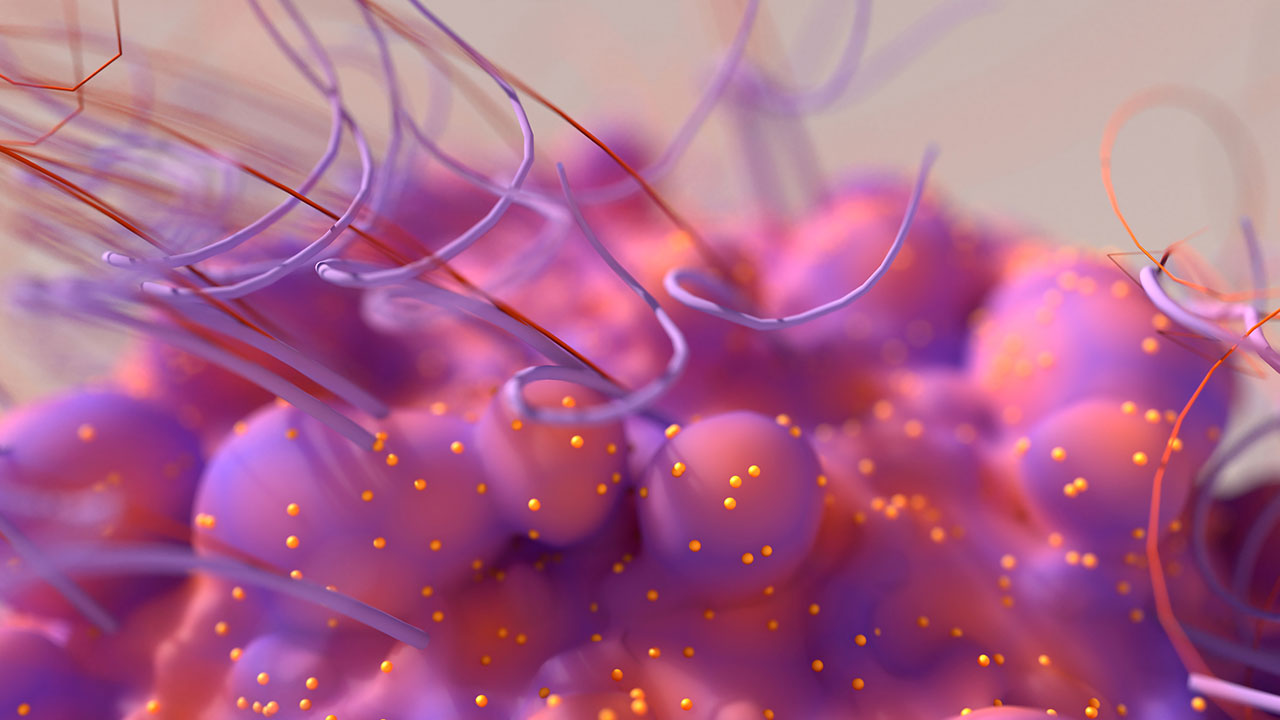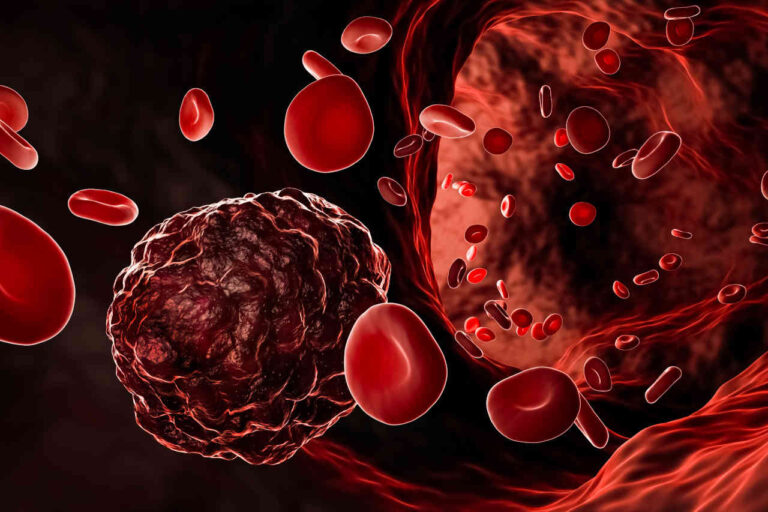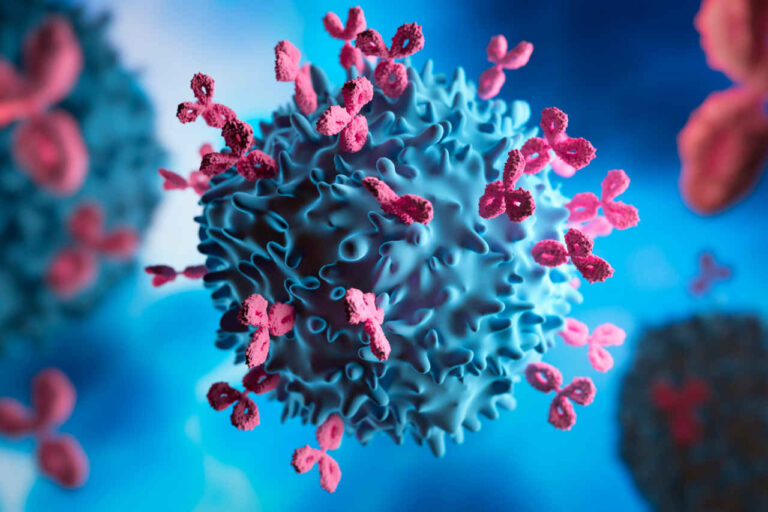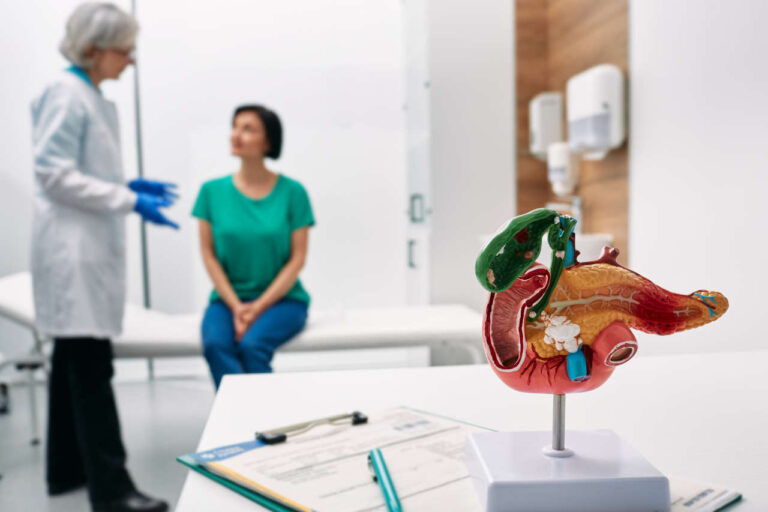
Docetaxel (pronounced [dos se TAKS el]) is also known by the brand name Taxotere. It is an antineoplastic (anti-cancer) drug that belongs to a class called antimicrotubular or taxane derivatives. It is a type of chemotherapy that prevents cancer cells from multiplying and restricts their growth.
What Is Chemotherapy?
Chemotherapy is a cancer treatment in which certain drugs are used to kill cancerous cells. These drugs are usually cytotoxic chemical substances that are toxic to the cells, restrict their growth, prevent their division, and ultimately kill the cells.
Protection From Chemotherapy
This drug is considered to be a hazardous agent. Therefore, it is important to take appropriate precautions for receiving, handling, storing, administering, and disposing of this medication. It is highly recommended to wear gloves while administering this medication.
How Is Docetaxel Used?
Docetaxel has been approved by the Food and Drug Administration (FDA) for males to treat many different types of cancers including breast, head/neck, lung, cervical, prostate, bladder, ovarian cancer, and many more. It can be prescribed alone or with other medications simultaneously.
Available Formulations
Docetaxel is only available as a solution for intravenous injection. It is available in different concentrations including 10 mg/ml and 20 mg/ml, and some formulations may contain alcohol. The solution for injection may be available in a one-vial or two-vial formulation.
Injectable solution:
- 10 mg/ml (2 ml, 8 ml, or 16 ml)
- 20 mg/ml (1 ml or 4 ml)
Alcohol-free solution for injection:
- 20 mg/ml
- 80 mg/4 ml
- 160 mg/8 ml
Directions for Use
The dose of docetaxel is determined using patient weight, height, body surface area (BSA), cancer type, general health, and other medical conditions. It should be infused over 1 hour using nonsorbing polyethylene-lined (non-DHP like glass, polypropylene, polyolefin) tubing. Gently rotate and invert manually to mix the solution thoroughly before administration. Avoid vigorous agitation of solutions. Dilute docetaxel with 250 to 500 ml of normal saline (NS) or dextrose 5% in water (D5W) to a final concentration of 0.3 to 0.74 mg/ml.
If intact vials were refrigerated, allow them to sit at room temperature for 5 minutes prior to dilution. Inspect vials as the solution is supersaturated and may crystalize over time. Do not use if crystalized. IV filters are not recommended for use with docetaxel. Assure proper needle or catheter position before administration.
One-Vial Formulations
For the non-alcohol formulation, use a 20-gauge needle to withdraw docetaxel from the vial, then dilute with the appropriate solution.
For the Taxotere formulation, a 21-gauge needle should be used to withdraw docetaxel from the vial.
Two-Vial Formulation
Vials should be diluted with polyethylene glycol 400/water (provided with the drug).
For Bladder Cancer Treatment
If taking docetaxel for bladder cancer, it is recommended to empty the bladder before administration of docetaxel and to avoid emptying the bladder until 1 to 2 hours after the dose is administered.
Missed Dose
This medicine needs to be administered on a fixed schedule. If you miss a dose, notify your doctor, home health caregiver, or treatment clinic.
Storage
Storage and stability may vary by manufacturer; refer to specific prescribing and manufacturer information. Under certain situations, docetaxel may be stored at room temperature or in the refrigerator. Docetaxel should be stored away from direct sunlight. Solutions diluted for infusion should be used within a short period of time after mixing. Please refer to prescriber and manufacturer instructions for specific times.
What To Avoid While Taking Docetaxel?
While taking docetaxel therapy, you must follow some precautions. Always tell your physician about any medications you are already taking. Do not take any drug or medicine (even herbals, vitamins, or over-the-counter medications) without prior consent from your physician or pharmacist. They may have some significant interactions with docetaxel. Avoid grapefruit, grapefruit juice, and any foods or supplements containing grapefruit or grapefruit juice throughout therapy as they may interact with the medication as well.
Pregnancy and Docetaxel
Pregnancy status must be checked prior to starting docetaxel therapy in women of childbearing age, and effective contraception must be used during treatment and for 6 months after the last dose. Males with female partners of reproductive potential should also use effective contraception during therapy and for 3 months after the last docetaxel dose. Docetaxel may cause fetal harm and is therefore not recommended for women who are breastfeeding during therapy. Breastfeeding should be avoided for at least 1 week after the last dose.
Side Effects

As with any other medication, you may encounter side effects while taking docetaxel. A few things to remember are:
- You may not have all the side effects listed below. Many people may experience little to no side effects.
- The severity of side effects may vary from person to person, so don’t compare your side effects with other people’s experiences.
- Most of the side effects will improve when therapy is discontinued.
- These side effects are easily manageable most of the time either by readjusting the dose of docetaxel or using additional medications to treat the symptoms. Consult with your physician or pharmacist to explore available options.
- Do not hide any symptoms; if you feel any discomfort, do not hesitate to tell your physician or pharmacist about it.
Note: This is not a comprehensive list of all side effects. Talk to your doctor if you have questions.
Some of the more serious side effects of docetaxel are listed below:
Bone Marrow Suppression (BMS)
It is essential to keep up with regular blood tests, especially the complete blood count test (CBC). The CBC blood test is capable of detecting potential BMS, including neutropenia (low neutrophils, a type of white blood cell), thrombocytopenia (low platelet count), and anemia (low red blood cells), all of which are potential side effects of using docetaxel.
Skin Rash
On rare occasions, docetaxel may cause a serious skin reaction called Stevens-Johnson syndrome (SJS) or toxic epidermal necrolysis (TEN). These rashes may appear as red, swollen hives; itching, blistered, or peeling skin (with or without fever); red or irritated eyes; or sores in the mouth, throat, nose, or eyes. Notify your physician or pharmacist immediately of any signs of a rash or allergic reaction, including wheezing; tightness in the chest or throat; trouble breathing, swallowing, or talking; unusual hoarseness; or swelling of the mouth, face, lips, tongue, or throat. Discontinuation of docetaxel may be warranted if SJS or TEN is suspected.
Extravasation
Docetaxel is an irritant with vesicant-like properties. Proper needle or catheter placement should be ensured before and during infusion; avoid extravasation. Extravasation is the leakage of the drug from a blood vessel or tube into the tissue around it. If extravasation occurs, stop the infusion immediately and disconnect (leave the needle in place). Aspirate the extravasated solution gently (do NOT flush the line) and remove the needle. Elevate the part of the body that has experienced the extravasation and apply either a warm or cold compress to the area.
Fluid Retention
Docetaxel can commonly cause fluid retention (also known as edema) and weight gain. Edema may lead to significant complications, including liver or heart complications and edema in the lungs. In certain cases, the fluid may need to be drained. Rapid weight gain or swelling of the abdomen, legs, feet, or arms can all be signs of fluid retention. Contact your physician if you experience any of these symptoms. Fluid retention only occurs during docetaxel use and on average subsides within 16 weeks after discontinuation of treatment.
Allergic Reaction/Hypersensitivity
There have been cases reported of patients with allergic reactions to the docetaxel injection or any of its components. In addition, worsening asthma has been reported with therapy in patients with a history of asthma, sinusitis, or allergies. Signs of an allergic reaction can include rash; hives; itching; wheezing; red, swollen, blistered, or peeling skin with or without fever; trouble breathing, swallowing, or talking; tightness in the chest or throat; unusual hoarseness; or swelling of the mouth, face, lips, tongue, or throat. If you are experiencing any of these symptoms, seek emergency medical attention immediately. Hypersensitivity with docetaxel most typically occurs within the first 2 infusions.
Tumor Lysis Syndrome (TLS)
TLS is caused by the fast breakdown of cancer cells (bursting of the cells). TLS can lead to kidney failure and the need for dialysis treatment, or an abnormal heart rhythm. Certain types of conditions are at higher risk for TLS. Consult with your physician to learn more. Tell your healthcare provider right away if you have any of the following signs or symptoms of TLS: trouble passing urine, abnormal heartbeat, passing out, muscle weakness or cramping, constant fatigue, diarrhea, or inability to eat.
Fatigue/Weakness
Docetaxel can cause dizziness, drowsiness, fatigue, feelings of tiredness, and blurred vision. Symptoms of weakness and fatigue may last a few days to several weeks. Driving or operating heavy machinery immediately after docetaxel infusion is not advised.
Secondary Malignancies
Although rare, docetaxel can potentially give rise to a secondary type of cancer during treatments, including myeloid leukemia. Continuous monitoring during treatment for new malignancies may be necessary.
Visual Impairment
A condition called cystoid macular edema (CME) may occur with docetaxel use. If vision impairment occurs, a prompt comprehensive ophthalmic exam is recommended. If CME is diagnosed, initiate appropriate CME management and discontinue docetaxel (consider non-taxane treatments). This condition typically appears after the first cycle but subsides in most patients within 4 months after therapy completion.
Neurosensory Symptoms
Severe neurosensory symptoms like paresthesia, dysesthesia, or pain have been observed. These are sensations, especially in the hands and feet, similar to “pins and needles” or tingling and prickling. After discontinuation, symptoms may take some time to disappear.
Other common side effects may include:
- Nausea/vomiting
- Mouth sores
- Hair loss
- Nail changes
- Changes in taste
- Constipation
- Weight loss
- Eye redness
- Joint/muscle pain
Monitoring
Due to its many side effects, monitoring is an important part of managing docetaxel therapy. The following includes what you can expect with docetaxel use:
- Monitoring for hypersensitivity and fluid retention. Patients should be premedicated with corticosteroids for 3 days, beginning the day before docetaxel administration, to help reduce the incidence and severity of hypersensitivity reactions and fluid retention.
- Monitoring of liver function, especially in patients with preexisting liver complications
- Some docetaxel formulations contain alcohol; use with caution in patients for whom alcohol intake should be avoided or minimized.
- Docetaxel may not be recommended in patients with severe liver impairment.
- Frequent blood tests to monitor bone marrow suppression.
Docetaxel FAQs
Is docetaxel a chemo agent?
Chemo drugs are those that are used in the management of various cancers. Docetaxel works by blocking certain structures in the cancer cell which are essential for the replication and growth of cancer and normal cells. Inhibition of these structures leads to cellular death. Thus, docetaxel is a chemo agent that is used as a treatment option for various cancer patients.
How should docetaxel be taken?
The dose of docetaxel is determined using patient weight, height, body surface area (BSA), cancer type, general health, and other medical conditions. It should be infused over 1 hour using nonsorbing polyethylene-lined (non-DHP like glass, polypropylene, polyolefin) tubing. Gently rotate and invert manually to mix the solution thoroughly before administration. Dilute docetaxel with 250 to 500 ml of normal saline (NS) or dextrose 5% in water (D5W) to a final concentration of 0.3 to 0.74 mg/ml.
REFERENCES:
- Docetaxel. In: Lexi-drugs online [database on the Internet]. Hudson (OH): Lexicomp, Inc.; 2016 [updated 8 Mar 2022; cited 8 Mar 2022]. Available from: http://online.lexi.com.
- Docetaxel. In: In Depth Answers [database on the Internet]. Greenwood Village (CO): IBM Corporation; 2017 [cited 2022 Feb 2]. Available from: www.micromedexsolutions.com.
- Docetaxel: MedlinePlus Drug Information. Medlineplus.gov. https://medlineplus.gov/druginfo/meds/a696031.html. Published 2022. Accessed March 5, 2022.
- Docetaxel (Intravenous Route). https://www.mayoclinic.org/drugs-supplements/docetaxel-intravenous-route/side-effects/drg-20068305?p=1. Published February 1, 2022. Accessed March 2, 2022.
- Taxotere: Uses, dosage, side effects, warnings. Drugs.com. (n.d.). Retrieved March 8, 2022, from https://www.drugs.com/Taxotere.html












